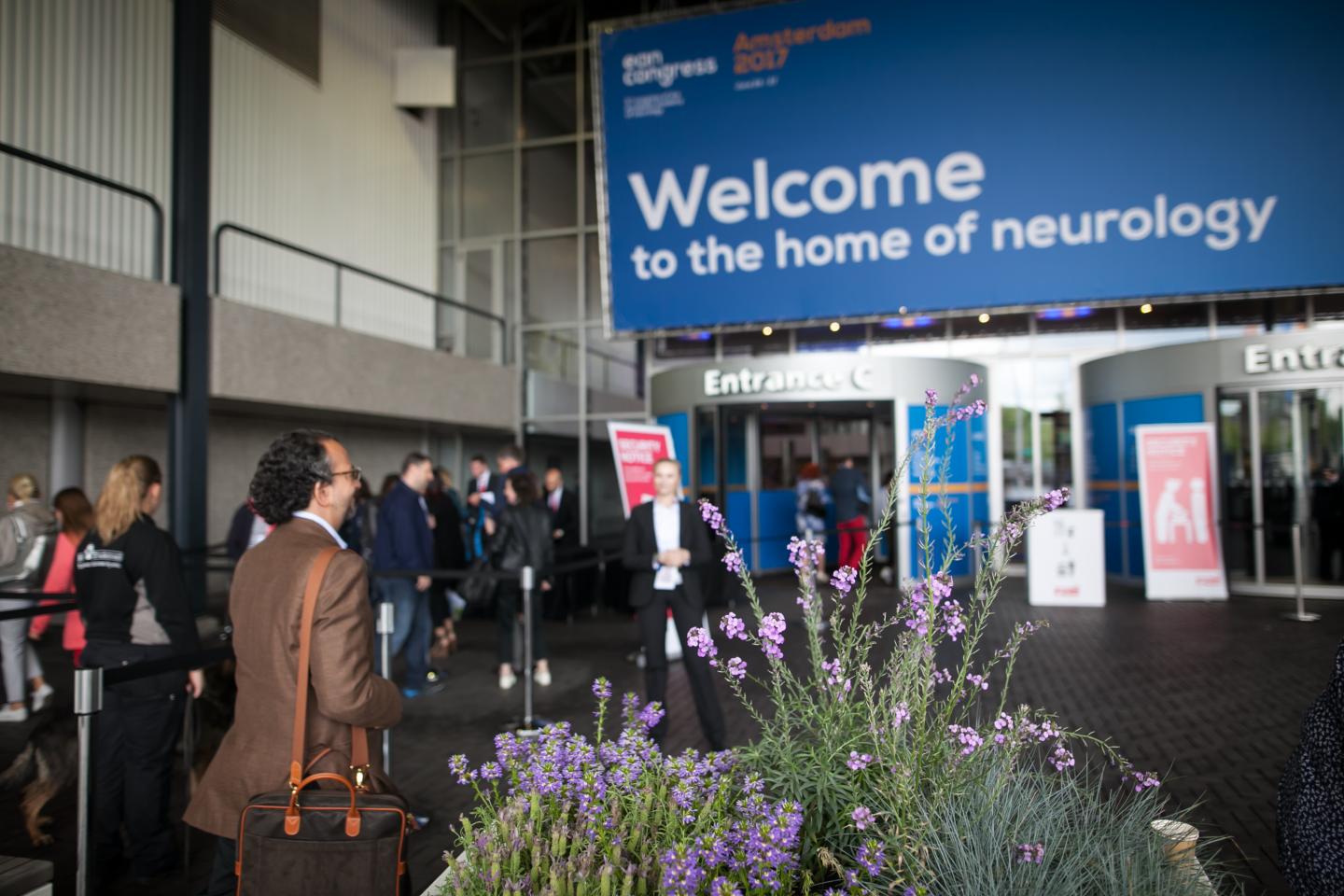Stress of surviving the Holocaust has shown a lifelong and lasting negative impact on survivors’ brain structure, as well as potentially impacting their offspring and grandchildren, a new study shows

Credit: European Academy of Neurology
(Oslo, Sunday, 30 June, 2019) Stress of surviving the Holocaust has shown a lifelong and lasting negative impact on survivors’ brain structure, as well as potentially impacting their offspring and grandchildren, a new study shows.
The novel research, presented today at the 5th European Academy of Neurology Congress, found that surviving the Holocaust had a life-long psychological and biological effect with grey matter reduction affecting the parts of their brain responsible for stress response, memory, motivation, emotion, learning, and behaviour.
Utilising MRI scanning, the study looked at the brain function of 56 people with an average age of 79-80, comparing 28 Holocaust survivors with 28 controls who do not have a personal or family history of the Holocaust. Survivors showed a significantly decreased volume of grey matter in the brain compared with controls of a similar age who had not been directly exposed via personal or family history to the Holocaust.
The study differentiated between survivors above and below the age of 12 years in 1945 and found that the reduction in grey matter was significantly more expressed in younger survivors, which may be attributed to the higher vulnerability to a stressful environment of the developing brain in childhood. In line with previous research, the study found a reduction of grey matter in areas of the brain associated with post-traumatic stress disorder (PTSD) in combat veterans and those suffering early-life stress experience. However, the research also showed that reductions in grey matter in other areas of the brain went far beyond what had previously been found in those suffering PTSD; with survivors suffering a higher level of stress but also higher levels of post-traumatic growth. Despite having suffered extreme stress the survivors reported that they were satisfied with their personal and professional life after the war.
The researchers are now investigating the impact of the Holocaust on survivors’ children and grandchildren, and early results in survivors’ children show reduced connectivity between structures of the brain involved in the processing of emotion and memory. Further research is set to identify biomarkers of stress resilience and post-traumatic growth and to determine whether transmission to offspring is based on behavioural and psychological factors or on genetic factors.
Commenting on their research findings, Professor Ivan Rektor, a neurologist from Brno, Czech Republic, explained, “After more than 70 years the impact of surviving the Holocaust on brain function is significant. We revealed substantial differences in the brain structures involved in the processing of emotion, memory and social cognition, in higher level of stress but also of post-traumatic growth between Holocaust survivors and controls. Early results show this is also the case in children of survivors too.”
“Our hope is that these findings and our ongoing research will allow us to understand more about the effect of these experiences in order to focus therapy to support survivors’ and their descendants’ resilience and growth. We may also reveal strategies that Holocaust survivors used to cope with trauma during their later lives and to pass on their experience to further generations”, added Professor Rektor.
###
Notes to Editors:
Press Enquiries:
For further information or to speak to an expert, please contact Luke Paskins or Hannah Murray at [email protected] or call +44 (0) 7732 499170.
Further Information:
For further information on the Holocaust, visit the Holocaust Memorial Day Trust: https:/
About the Expert:
Professor Ivan Rektor is the Head of the Research Centre at the Centre for Neuroscience, Masaryk University.
EAN – The Home of Neurology:
The European Academy of Neurology (EAN) is Europe’s home of neurology. Founded in 2014, through the merger of two European neurological societies, EAN represents the interests of more than 45,000 individual members and 47 national institutional members from across the continent. This year, EAN celebrates its fifth year of fostering excellence in European neurology and will bring together more than 6,000 neurologists and related scientists to the biggest general neurology conference in Europe.
In Oslo, Norway, from June 29 to July 2, there will be an exchange of knowledge and promotion of best practice, with a focus on the main theme of neuroinflammation. The EAN Congress will also cover all neurological diseases and disorders, including the big 7: epilepsy, stroke, headache, multiple sclerosis, dementia, movement disorders, neuromuscular disorders.
References:
1. Life-long effects of extreme stress on brain structures – a holocaust survivor MRI study. M. Fnaskova, P. ?íha, I. Rektor, presented at the 5th Congress of International Neurology in Oslo.
Media Contact
Luke Paskins
[email protected]




